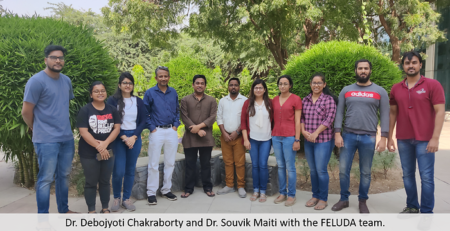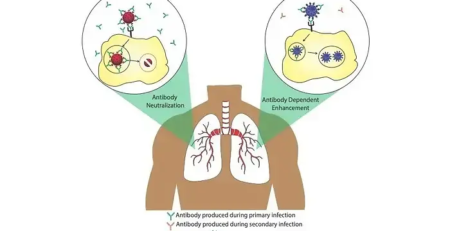Dr. Baskar Bakthavachalu, Senior Scientist, Tata Institute for Genetics and Society, Bangalore, has been awarded the prestigious SERB Science and Technology Award for Research (SERB-STAR), instituted to recognize and reward the outstanding performance of Principal Investigators of SERB projects. Baskar and his team studied the intrinsically disordered region (IDR) of the protein Ataxin-2 and its role in the formation of granules or amyloid filaments inside neurons. Their findings indicate that the IDR domain, though assists in the development of long-term memory, also causes specific forms of neurodegeneration. They deduce that this may be because the mechanisms that allow the formation and clearance of granules under normal conditions lean towards granule accumulation in diseased conditions. Baskar’s group is currently studying the cellular mechanism that regulates the Ataxin-2 granule assembly and also exploring therapeutic strategies to block/clear Ataxin-2 granules in iPSC and mouse ALS models.
Related Posts

TIGS at India Science Festival 2021
The Tata Institute for Genetics and Society (TIGS) has been a proud... read more

Sustainable Agriculture and Gene Editing Technologies
By Dr Deepak Pental, CSIR Distinguished Scientist and former Vice-Chancellor, University of... read more

The Making of CSIR-IGIB’s FELUDA
By Dr. Poorti Kathpalia, Science Communicator, with contributions from Dr. Debojyoti Chakraborty... read more

Sonia Sen talks about how her exposure to nature led her to study the brains of flies and mosquitoes
Sonia’s group at TIGS studies the development and the evolution of the... read more

TIGS #WorldStudentsDay Competition
On 15 October 2020, we celebrated World Students Day. The day marks... read more

Test! Test! Test!
By Hemalatha Rao, Varun Chopra, Sonia Sen Illustrations by Hemalatha Rao As we sit... read more

The way to a vaccine
By Ashwathi V, Anirudha LakshminarasimhanSince December 2019, scientists all over the world... read more

Improving Sericulture with New Genetic Technologies
Though man discovered the use of silk cocoons in textiles some 5000... read more

Antibody dependent enhancement: A challenge for vaccine development
By Shweta Yadav Vertebrates, including humans, have a complex immune system, which constantly... read more

On the path to global food security
Our success story began with agriculture. Organized farming enabled us to feed... read more

